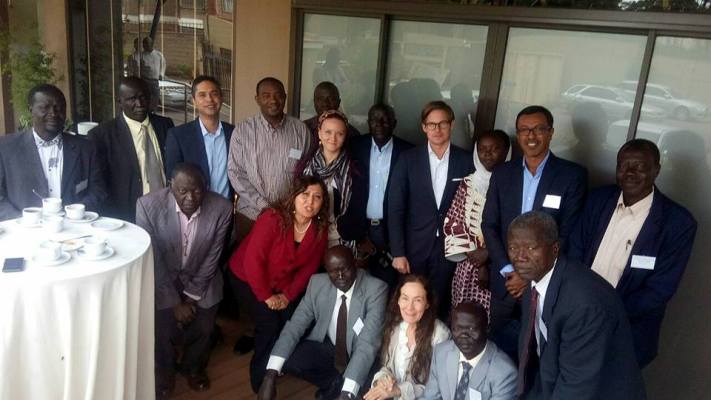SPLM-N, UN agree on plan to implement agreement on child soldiers

March 3, 2017 (KHARTOUM) – The rebel Sudan People’s Liberation Movement/North (SPLM-N) Friday said it has agreed with the United Nations on a comprehensive plan to implement the child protection agreement signed between the two sides.
South Kordofan and the neighbouring Blue Nile states, also known as the Two Areas, have been the scene of violent conflict between the SPLM-N and Sudanese army since 2011.
In November 2016, SPLM-N signed an agreement with the UN in Geneva to end use of child soldiers in the rebel-held areas in the Two Areas.
The UN signed the same agreement with the Sudanese government security forces including the Sudan Armed Forces, the Popular Defense Forces (PDF) and the Sudan Police Forces on 27 March 2016.
A working group from the SPLM-N and the UN has held a workshop from 27 February to March 1, to discuss the implementation of the agreement.
In a statement issued on Friday, SPLM-N peace file spokesperson Mubarak Ardol said the two sides agreed on a comprehensive plan to implement the child protection agreement, pointing they also agreed on the use of humanitarian tracks that will be determined by an agreement between the movement and the Sudanese government.
The SPLM-N underscored commitment to protect children, women and civilians in war areas, renewing readiness to meet with the U.S. Administration to discuss any proposals on humanitarian issues.
Also, Ardol renewed his movement’s readiness to respond to any invitation from the African Union High Implementation Panel (UNHIP) to resolve the humanitarian crisis, reiterating their position to give priority to resolving the humanitarian issue and separate it from any political agenda.
The African Union has been seeking to end the conflict for several years. However, last August, the two sides failed to sign a humanitarian cessation of hostilities agreement because Khartoum refuses to allow the delivery of food to civilians in some rebel-controlled areas in the Blue Nile State directly through Asosa, an Ethiopian Town near the border with Sudan.
In order to break the impasse on an agreement and facilitate humanitarian assistance, the United States last November has offered to deliver humanitarian medical assistance to the people in SPLM-N controlled areas.
However, the SPLM-N declined the American proposal and stuck to its demand for a humanitarian corridor through Asosa, to directly deliver 20% of the humanitarian aid to the civilians in the conflict-affected areas.
(ST)
